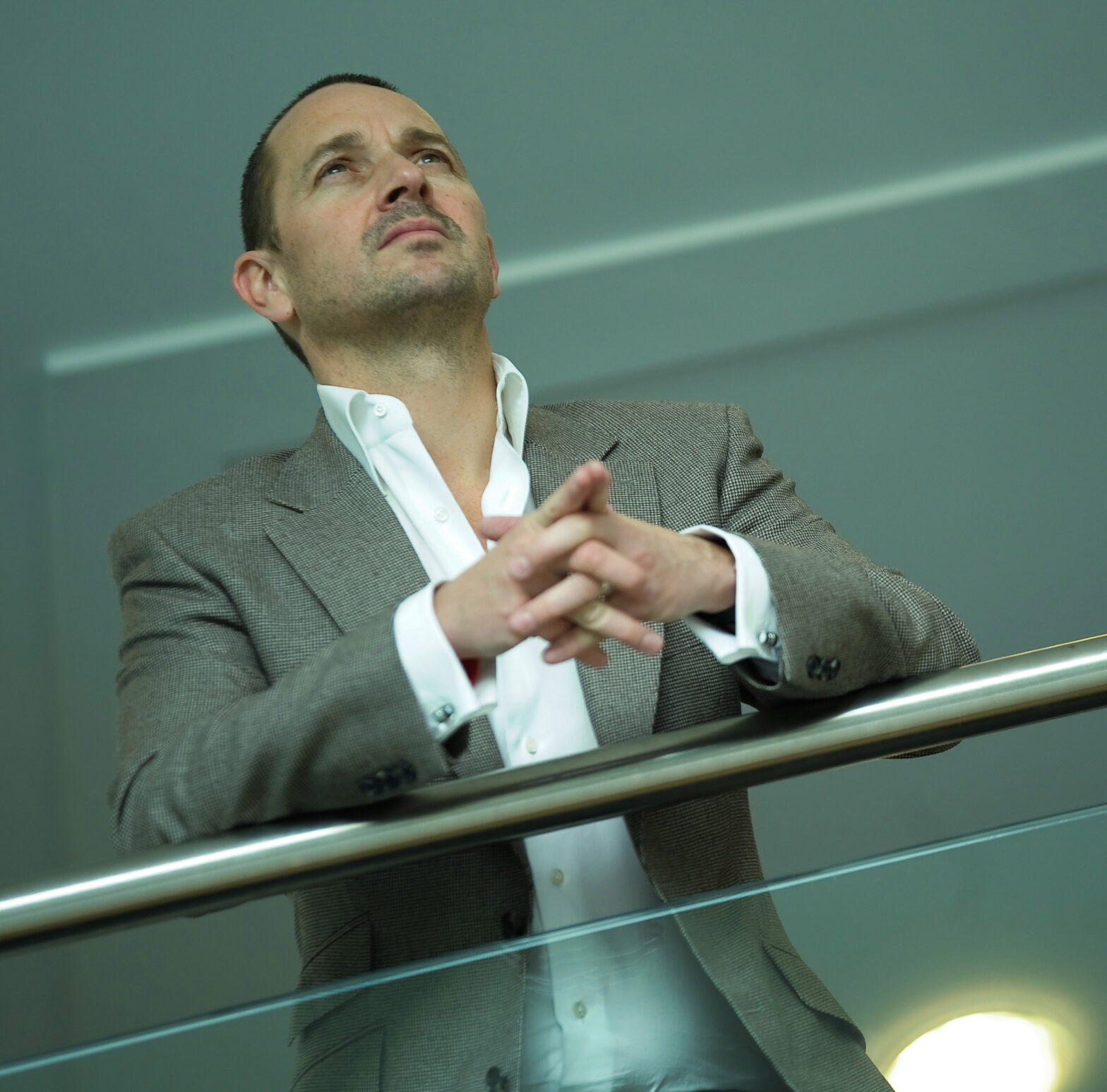I had been very successful working for a large company selling car and home insurance. It was the sort of business that had kept growing and forgotten its roots, so the customer service and staff morale weren’t great.
This was in 1991 and although I was only 23, it seemed to me that I could do a better job myself. I asked my dad to lend me £75,000 and used the money to set up an insurance brokerage from scratch. I went on to make 15 acquisitions, opened numerous offices and eventually sold the business for £20 million. In all honesty, as we expanded and grew, it was an 18-year adrenalin rush.
Time sensitive
If I look back over the years, I’ve always been the first into the office and last away. It’s important to lead from the front as it helps instil the right ethos in your business. Whatever I asked my staff to do, they would know I’d be able to do it myself.
When you’re managing people, you have to strike the right balance between being firm and being fair. I was probably too firm initially and, as a youngster who was very ambitious and hardworking, I probably didn’t listen to people enough.
Without doubt, the hardest part for me was managing growth, as I was going into the unknown. I found myself trying to do too many things at once. I had hired a manager to run the first branch I’d opened, but I was in charge of four other offices, and then I made my first acquisition, which I took charge of too.
Once you realise that you have to delegate, you still make mistakes initially as it’s new to you. I know now that I promoted people too quickly, but it’s not just the people element you have to keep a grip on as a company grows, it’s the technology too.
I misjudged the IT requirements of the company. It meant that I had to invest when the company was turning over several million pounds, rather than several hundred thousand pounds, which made it a bigger and more expensive task. I also had to change the culture of the business, as employees who had operated manually needed to learn how to make the procedures computerised.
Not quite right
When you make a mistake, you have to act quickly. I diversified and bought an estate agency business that I felt would complement our insurance products. The error I made was not to pay enough attention to my exit value.
Even though it made logical sense, the reality was that whoever was going to buy my company would be an insurance broker. Twelve months after buying the estate agency, I sold it.
One of the main lessons I have learnt is to trust gut instinct. This really hit home when I hired a guy who was basically committing fraud. He wasn’t putting the effort in and yet was achieving great results, which made me suspicious. I challenged my staff internally and had an external audit done to try and explain how he could be doing so well. Everybody told me it was fine, but then six months later I found there was £1 million to be written off. It was just a feeling I had, but it was absolutely spot on.
In terms of effort, running the business was never a stroll in the park. It was always 15-hour days, seven days a week. You hire people and think ‘at least I have a bit more time on my hands’, but it never works out like that.
The more you create, the more you do.
SMEs overlook mentoring
Business owners are widely ignoring the benefits of a personal business mentor, research finds.
According to a survey conducted by accountants Moore and Smalley, more than two fifths (42 per cent) of those running owner-managed businesses have never used the services of a personal business mentor or coach.
Judith Dugale, corporate services director at Moore and Smalley, believes that business owners often ignore themselves when it comes to personal development.
She adds, ‘Business owners will use professional advisors for their own business but obviously don’t see the benefit of one-to-one mentoring.
‘When running a business, owners can use a business mentor to bounce ideas off, to point them in the right direction, to help focus on the most important issues, to be a confidential sounding board and to be able to work ‘on’, not just ‘in’ the business.’
Dugale says that the firm has seen many business owners gain crucial support and motivation in the most stressful and challenging times, helping them achieve their goals.
She adds that those businesses owners should look to make regular mentoring sessions a key part of their business improvement strategy. ‘Whether it’s paid-for mentoring advice, free advice provided by a business support organisation, employing a non-executive director, or even consulting a wise business head that gives up their time for free, having some form of mentoring can make a real impact to a business.’
Figures from the government’s Small Firms Enterprise Development Initiative suggest that 70 per cent of small businesses that receive mentoring survive for five years or more, which is double the rate compared with non-mentored entrepreneurs, and are 20 per cent more likely to experience growth.





